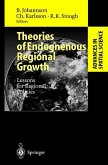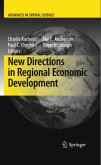It is possible that there once was a time when scholars used to sit isolated with their cogitations in their attics, emerging now and then to publish their latest e- dite offerings which no one had ever thought of before. If such a time did once - ist, it certainly does so no longer. Writing a scientific or scholarly book in our era is to a large extent a team effort in which your team members are continually changing and you are unceasingly grateful for the privilege of enjoying and be- fiting from the exertions, ideas, comments and support of a large number of very able people. Scientific and scholarly work nowadays is a process impossible wi- out the existence and use of social capital. This book is no exception to the above stated. There are very many colleagues (some of them referees and thus anonymous) and friends who have made the book possible. The foremost of these is Roger Bolton, with whom I wrote my first paper on social capital. Most of that paper has found its way into various passages of this book, while Chapter 6, Social Capital and Entrepreneurship, comes almost c- pletely from Roger's pen. Thank you, Roger, for letting me use your text! The empirical studies of the biotech industries of Japan, California and Sweden would have been impossible without a great deal of help.
From the reviews: "The book contains 14 chapters ... . are very rich in new concepts, theories, ideas, representing a first-class contribution to the development of the literature devoted to social capital. ... The whole book is written in a very exciting style, which invites the reader to reflect on the new ideas expressed ... . It is a very helpful book not only for experienced academics and researchers but also for postgraduate and PhD students ... . I congratulate Hans Westlund for this outstanding accomplishment ... ." (Daniela-Luminita Constantin, Romanian Journal of Regional Science, Vol. 2 (1), 2008) "Westlund's book is devoted to considering SC as a legitimate component of capital in the traditional economic triumvirate of land, labor, and capital. ... The book is well written and sociologically relevant ... . is richly referenced, with well over 300 sources cited, and, impressively, across a wide of range of disciplines, including sociology, political science, social theory, regional science, economics, and economic geography. This makes it a valuable resource for anyone interested in research on SC." (Howard Stafford, Journal of Regional Science, Vol. 48 (3), 2008) "Westlund writes that economic growth depends on importing and integrating external knowledge, producing new knowledge, innovating new products using newly acquired or created knowledge, and using new knowledge to market new products ... . He provides overviews of the relevant histories of the places and the industries. ... I enjoyed reading this book mainly because of the survey of the literature it provides. ... This is a good reference book." (Maureen Kilkenny, Papers in Regional Science, Vol. 87 (1), March, 2008)








